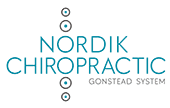Rocket CRM, a SaaS platform designed to help businesses manage and optimize their customer interactions, has introduced a series of updates to its CRM automation system aimed at improving operational efficiency and enabling more intelligent customer engagement. With a growing number of organizations seeking to automate routine processes and centralize customer data, the platform has gained attention for its user-driven design and automation flexibility.
The evolution of customer relationship management tools has been marked by the increasing demand for real-time visibility into customer interactions and the ability to act on that data in a coordinated and automated way. Rocket CRM addresses these challenges by offering a cloud-based system that combines workflow automation, customer data integration, and team collaboration in a unified environment.

One of the key features of Rocket CRM’s automation system is its event-driven workflow engine. Users can configure workflows that automatically respond to customer behaviors, internal triggers, or external integrations. For instance, when a customer submits a support request, the system can automatically assign the ticket, notify relevant personnel, and initiate follow-up procedures without the need for manual input. This reduces response time and helps standardize communication across teams.
The automation system also allows for conditional branching within workflows, providing flexibility for handling complex customer journeys. Businesses can set rules that guide the automation engine to take different actions depending on criteria such as customer segmentation, lead score, or historical behavior. These branching capabilities are particularly relevant for sales pipelines and onboarding processes, where different customer types may require varied outreach or engagement strategies.
Another significant component of the Rocket CRM platform is its real-time data synchronization capabilities. Customer data across different channels—such as web forms, email, chat, and third-party platforms—can be pulled into Rocket CRM in a structured format. This centralization helps reduce data silos and enables a more cohesive understanding of customer needs and interactions. Once centralized, the data becomes accessible for automation triggers, reporting, and manual review.
Rocket CRM’s system includes a visual workflow builder designed to make automation accessible to users without a technical background. The builder employs a drag-and-drop interface, which allows users to create workflows by connecting logic blocks and setting criteria. This approach lowers the barrier to entry for businesses that do not have dedicated development teams but want to automate their customer-facing operations.
The platform also includes automation templates for common use cases such as lead nurturing, appointment reminders, feedback collection, and re-engagement campaigns. These templates are customizable, allowing organizations to adapt them to their specific brand voice and operational requirements. By providing a framework that is both structured and flexible, Rocket CRM enables faster implementation and continuous optimization of automation strategies.
In terms of system integration, Rocket CRM supports API access and native connections with several third-party applications. These integrations make it possible to extend automation capabilities beyond the CRM platform, linking customer interactions with payment systems, marketing tools, support software, and more. This ensures that automation workflows can influence and respond to actions across the broader business ecosystem.
For organizations concerned with data governance and security, Rocket CRM employs role-based access controls, audit logs, and encrypted data storage. These features are designed to ensure that customer information is handled in compliance with data protection regulations and internal security policies. Users can also configure automated alerts and error handling to detect anomalies in workflows or system behavior.
The system’s analytics module offers real-time dashboards and customizable reports that help teams understand the performance of their automated processes. Metrics such as task completion rates, lead conversion trends, and customer response times can be monitored continuously. These insights support data-driven decision-making and highlight opportunities to refine automation logic for better outcomes.
With an increase in remote and distributed workforces, Rocket CRM’s automation system also supports asynchronous communication and cross-departmental collaboration. Team members can be notified automatically when tasks require their input or review, and automation can assign tasks based on workload distribution or specific user roles. This collaborative aspect helps maintain continuity across departments, even when teams are working in different locations or time zones.
Another important consideration in the development of Rocket CRM’s automation tools is scalability. The platform has been structured to support growing data volumes and increasing complexity in business processes. Whether a business manages a few hundred leads or thousands of ongoing customer interactions, the system is designed to maintain consistent performance and reliability.
Rocket CRM has also placed emphasis on user support and onboarding. To accompany its automation features, the company provides a knowledge base, video tutorials, and onboarding assistance to help users configure workflows efficiently. By combining product features with structured learning resources, the platform aims to accelerate time-to-value for organizations deploying CRM automation for the first time or migrating from legacy systems.
As businesses continue to navigate increasingly complex customer expectations and competitive pressures, CRM automation is becoming a necessity rather than an optional tool. Rocket CRM’s approach combines technical flexibility with user-centered design to support organizations of varying sizes and industries in their efforts to streamline customer interactions and improve operational agility.
For more information about Rocket CRM’s automation features, product documentation, or to request access to a demo environment, interested parties can visit https://pressadvantage.com/story/78370-rocket-crm-advances-crm-automation-capabilities-to-streamline-business-operations/















